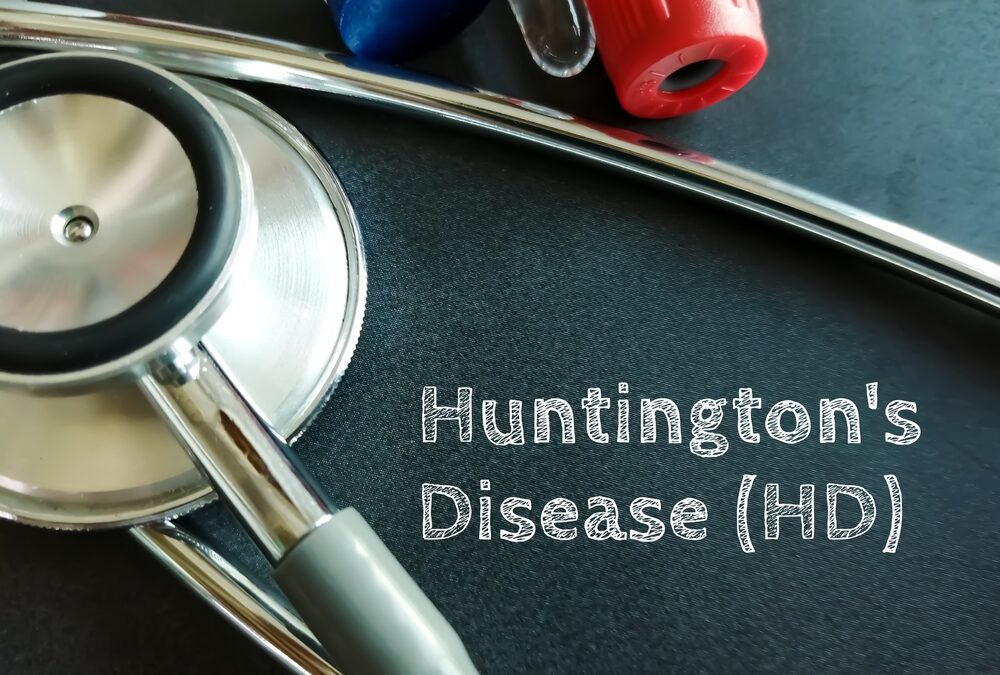Huntington’s disease (HD) is a progressive neurodegenerative condition that poses significant challenges to those affected and their families. Characterized by motor dysfunction, behavioral disturbances, and cognitive decline, HD impacts approximately 41,000 symptomatic individuals in the U.S., with another 200,000 at risk of inheriting it. Despite its challenges, there is hope and a pathway to a fulfilling life for those diagnosed with the disease.
The Genetics of Huntington’s Disease
HD is a genetic disorder, and each child of a parent with the disease has a 50% chance of inheriting the gene. The genetic nature of HD makes it a deeply personal and familial issue, with symptoms potentially appearing earlier in each successive generation. Understanding one’s genetic status can be achieved through definitive genetic testing. Which is available for individuals over the age of 18 who are asymptomatic or symptomatic. Alternatively, testing is available for individuals under 18 if they are symptomatic. Dr. Cathy Stevens at Erlanger leads this crucial aspect of patient care, providing testing and guidance.
Diagnosis and Early Symptoms
Diagnosing HD typically involves a neurological exam, family history, and genetic testing. Early signs of the disease can include subtle changes in personality, such as irritability, as well as depression, anxiety, and issues with executive dysfunction. Recognizing these prodromal symptoms early can be key to managing the disease proactively.
Challenges and Supportive Measures
Living with HD involves navigating several challenges, from the need for constant caregiving—often by younger family members—to managing the financial burdens associated with care. Medications are available to manage symptoms, but much of the treatment focuses on therapies like speech, swallowing, and physical therapy and the use of assisted devices, which can be costly.
Moreover, patients may face difficulties with compliance due to executive dysfunction, which complicates tasks such as medication management and attending appointments. There are also societal challenges; for instance, involuntary movements may be mistaken for intoxication, leading to misunderstandings with law enforcement.
Community Education and Advocacy
Recognizing the importance of community support, Erlanger proactively educates local police and fire departments about HD. Social worker Sarah Hines is spearheading efforts to hold seminars that educate first responders, aiming to foster understanding and prevent unfortunate incidents.
Multidisciplinary Care
Erlanger’s Huntington’s Disease Multidisciplinary Clinic, a partner site of Vanderbilt’s Huntington’s Disease Society of America Center of Excellence, is an example of comprehensive care in action. Patients can see multiple specialists in one day, including nurse practitioners, neurologists, social workers, speech therapists, physical therapists, occupational therapists, and neuropsychologists. This approach saves time and ensures a coordinated and efficient treatment plan.
Education and Support Resources
Education and awareness are invaluable. The Huntington’s Disease Society of America https://hdsa.org/ is a fantastic resource for patients and families, offering information and support. Erlanger’s clinic and Vanderbilt also host an education day in late summer/early fall, an excellent opportunity for patients and families to learn more about the disease and available resources.
Living Well with Huntington’s Disease
While HD is currently incurable and ultimately fatal, early diagnosis and proactive management can lead to a quality life. People can live well with HD for many years, especially when symptoms are well-managed. The typical life expectancy post-symptom onset ranges from 10 to 30 years, with quality of life being significantly influenced by the support systems in place and the management of symptoms.
Looking Forward
For those concerned about HD, either for themselves or their loved ones, the best first step is to seek a referral to a specialist clinic from a primary care provider. Understanding Huntington’s disease is crucial for patients and society to foster empathy, support, and effective care for those affected.
As research continues and awareness grows, there is hope that future advancements will bring us closer to a cure. In the meantime, education, support, and quality care remain our strongest tools in the fight against Huntington’s disease.








